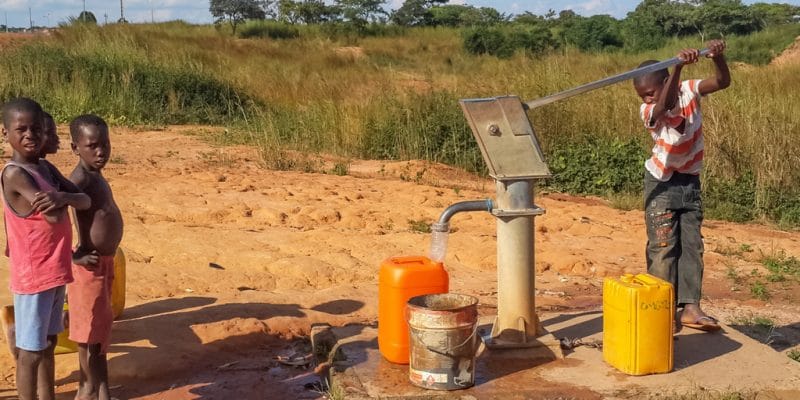The populations of Genieri, a village located in the Lower River region of the western Gambia, recently witnessed the laying of the foundation stone for phases I and II of their Genieri Water, Sanitation, and Hygiene (G-WASH) project. It is financed by the inhabitants of the village and the diaspora.
In the west of Gambia is Genieri, a village where more than 1,200 people live. It is known for its historical heroism in West Africa. The population of this village had repelled the assault of jihadist Foday Kaba Dumbuyaa in the 19th century. But what is less well known is that women, who make up 70% of the village’s population, get up very early in the morning to do a daily water chore. Another form of heroism….
In the absence of a public water utility capable of relieving these women, the people initiated the Genieri Water, Sanitation, and Hygiene (G-WASH) project. It is for this reason that they massively came on November 21, 2018 to attend the laying of the foundation stone for the first phase of the water project. “The aim is to promote rural development and improve community health and individual well-being through water, sanitation and hygiene,” says Nfamara Sanneh, the villagers’ representative.
Community funding
The work has been entrusted to Sky Light Electricity and Water Management Company. It is owned by Alkali Marong, a native of Genieri. It will drill and install a community well in the centre of the village, so that it can provide drinking water in 20 taps spread over several parts of the village.
“We are hopeful about this development project; if it is successful, it will not only improve access to safe drinking water, but it will also address the difficulties women and girls face in fetching water,” says Nfamara Sanneh. The total cost for this first phase of the G-WASH project is 1.5 million dalasis, or more than $30,000. The financing was entirely provided by the people. In some families, more than $100 has been invested. According to Majar S. Sanyang, who is the spokesperson for Genieri’s diaspora in the United States, some of his peers have contributed individually, up to $2,000. It should be noted that 15% of the natives of this village live abroad, mainly in the European Union, the United Kingdom and the United States.
After the completion of phases I and II of the project (ongoing), phase III, dedicated to sanitation, will have to be launched. But to do so, it will require an investment of up to $500,000. The villagers therefore call for support from the Gambian administration and development partners.
Jean Marie Takouleu






